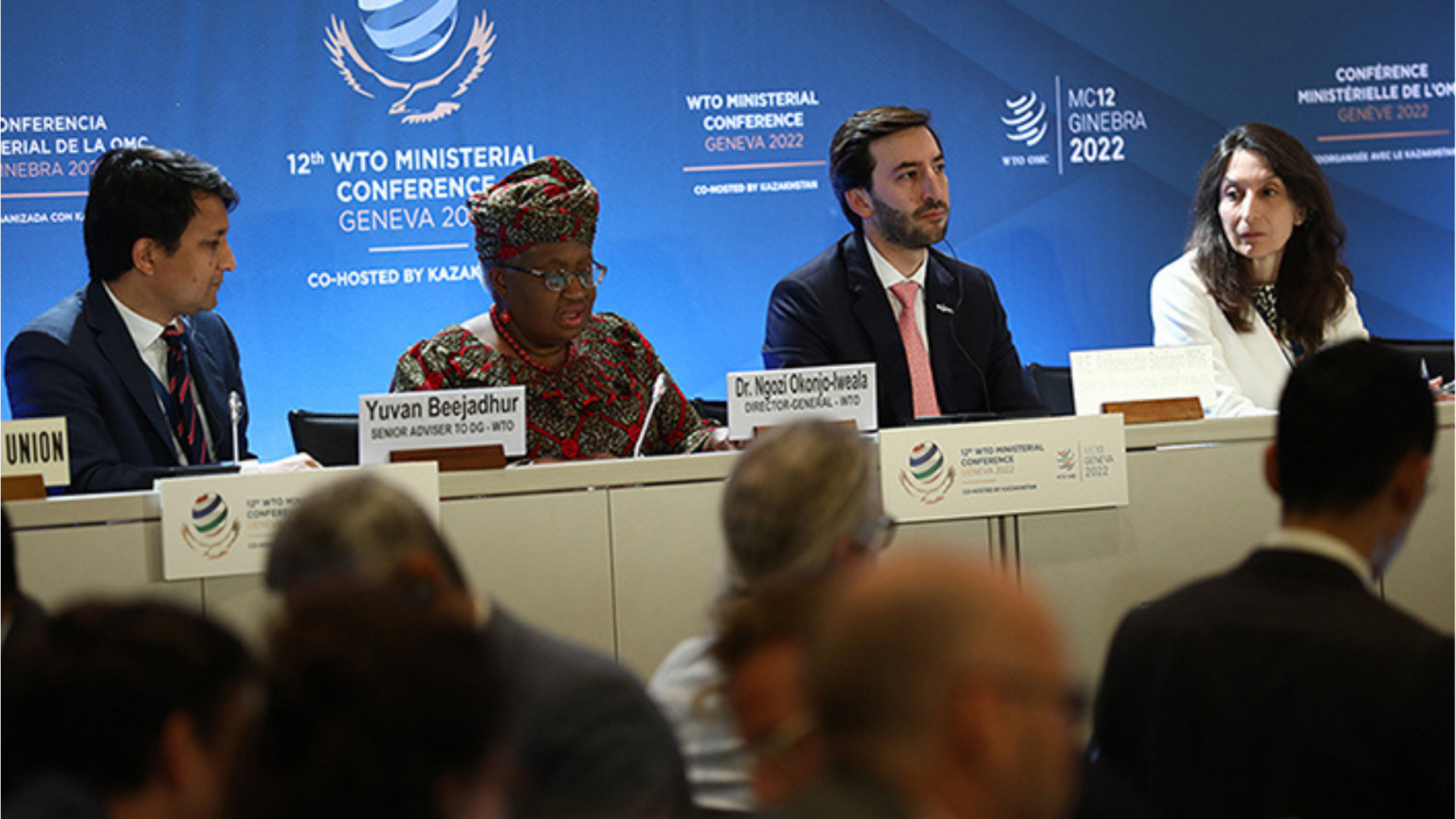The 12th WTO ministerial conference at Geneva is extended for a day to 16 June, In an urgent communication dispatched to heads of delegation today by the WTO’s secretariat reads.
The conference is ongoing from 12 June which was held till 15 June, but the ongoing contention between member states on different matters such as patent waiver, fisheries subsidy agreement and the stockpile of food items by the government, is seeking more time to reach on consensus.
The major non-convergence issue is the fisheries subsidy agreement. The issue of exploitative fishing is a grave concern for the world community and the subsidies on fishing and overfishing increase the exploitation of fish stocks.
Although, the creation of fisheries subsidy discipline has been on the WTO negotiation table since 2001. However, India and many developing and least developing countries have issues related to their fisherman’s livelihood and financial security.
India’s Commerce & Industry Minister Piyush Goyal is leading India’s stand on this matter at the 12th WTO ministerial at Geneva. He said in the discussion that “I strongly feel that this outcome of the exercise being carried out now, has not provided a level-playing field to the developing nations to address the aspirations of the traditional fishers and their livelihood. Several million fishers, nearly 9 million families in India depend on assistance and support from the Government”
The Major contested areas and concerns for India
India has concerned with Article 5.5.1 of the draft agreement on fisheries subsidy. The Article noted that “A subsidy is not inconsistent with Article 5.1 if the subsidizing Member demonstrates that measures are implemented to maintain the stock or stocks in the relevant fishery or fisheries at a biologically sustainable level.”
Piyush Goyal said on this matter that the article provides a carve-out to nations under the garb of “conservation and management measures”, who does fishing outside their exclusive economic zone.
India’s another major concern has that the de-minimis level of 0.8 per cent of the annual global volume of marine capture. Article 5.5(b) of the draft agreement on fisheries subsidy states that “A developing country Member may grant or maintain the subsidies” to “fishing and fishing-related activities if its share of the annual global volume of marine capture production does not exceed [0.8] per cent”
On the de-minimis level, Commerce Minister Piyush Goyal said that “it does [the article] not take into account that an African country maybe supporting 220 million people population or possibly supporting a very large number of fishermen against another country which may be supporting a 2 million – 3 million population and ten thousand fishermen, how can the de-minimis be the same for all sets of people.”
Minister Piyush Goyal also said that India will argue in the discussion on subsidies that Distant Water Fishing Nations should stop any kind of subsidies for 25 years to fishing or fishing-related activities outside their Exclusive Economic Zone (EEZ) and they have to transfer these opportunities to developing nations and Least Developing Nations (LDCs).
Whereas the Draft text on subsidies agreement provides exemption on overfishing to developing and least developing countries in case of low income, resource-poor and livelihood fishing only upto 12 nautical miles despite Exclusive Economic Zone gives access to countries to performing economic activities upto 200 nautical miles.
India has also concerns related to specific fuel subsidy, as draft text on subsidies agreement prohibits specific fuel subsidy and does not include non-specific fuel subsidy which is the major part of fuel subsidies.
India also want to 25 years transition period for non-distant water fishing countries. Minister Piyush Goyal said that We feel that without agreeing to the 25-year transition period, it will be impossible for us to finalize the negotiations













